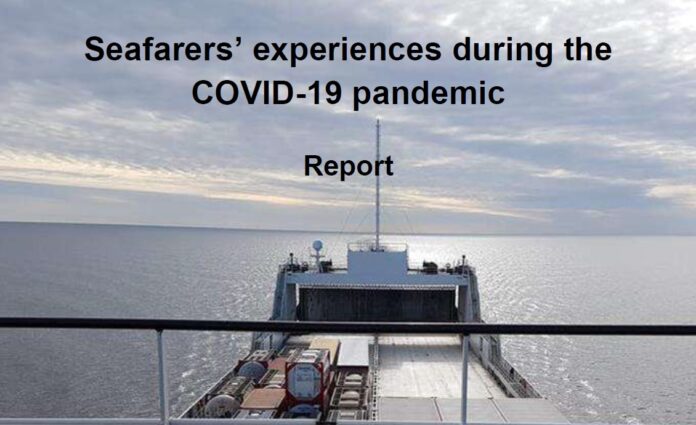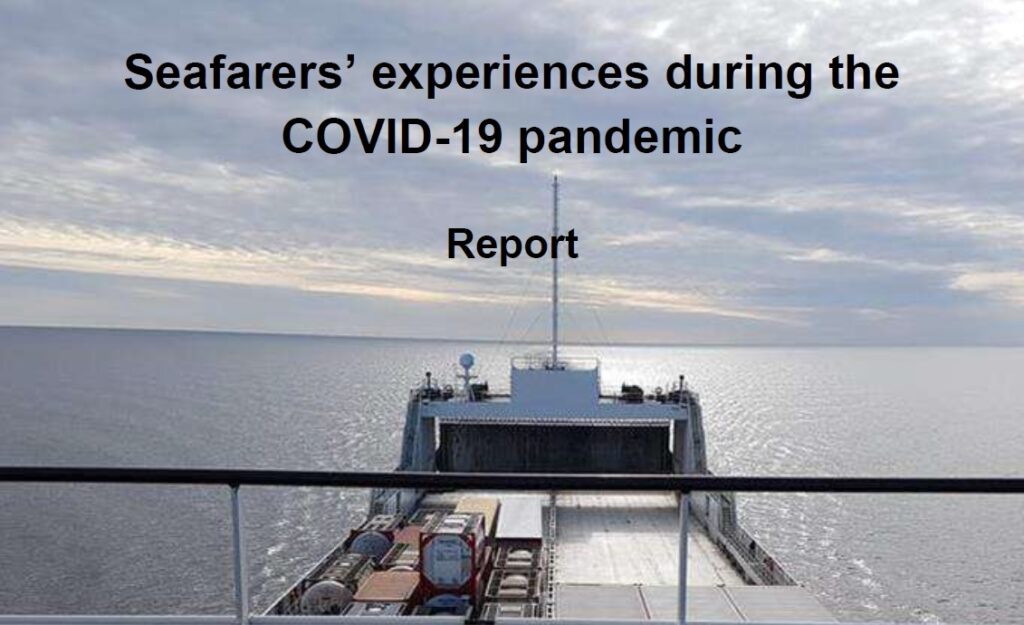
(www.MaritimeCyprus.com) This report provides an overview of preliminary findings of a study on the experiences of seafarers during the COVID-19 pandemic. The purpose was to examine the impact of the pandemic on seafarers’ work and life on board as well as on their mental health and exhaustion and identify factors that may mitigate the negative impact of the pandemic.
Data were collected through an online survey between 3 July and 25 September 2020. The analyses in this report are based on responses from 671 seafarers who were on board when they completed the survey. Respondents had been on board between less than a month and 18 months when they completed the survey (mean: 4 months). 72.5% of respondents were officers, with almost half of the respondents engaged on Northern European flagged vessels.
Most had at least limited free Internet access on board. Hence, in interpreting the findings of this study, it is important to note that the data are not based on a representative sample, and they might present a more positive situation than one might obtain from a more representative sample.

Some of the key findings are summarised below:
- The majority of respondents reported serious impacts of the pandemic on crew changes and ship-shore interactions. Respondents’ experiences varied with regard to the extent to which the pandemic had affected their employment, non-work life on board, and access to supplies.
- Almost half of the respondents reported an increase in workload in comparison to their workload prior to the pandemic.
- On average respondents felt less safe in port than at sea.
- The main difficulties and challenges reported by survey respondents concerned crew changes, ship-shore interactions (incl. lack of shore leave and difficulties in getting supplies), the situation on board (e.g., high workload, fatigue, conflicts, tensions), and lack of information and support from the shipping company.
- There was a 50/50 split in responses between those who reported receiving “a lot” and “enough” support and those who did not. Main sources of support identified by respondents’ were shipping companies, family and friends at home and social media.
- Over 40% of the respondents indicated that they had experienced symptoms of
depression several times, almost every day or every day during the past seven days, whereas over half reported symptoms of anxiety. Moreover, on average, respondents had experienced symptoms of exhaustion between “once” and “several times” during the past seven days. Feeling exhausted, tired and having sleeping problems were most common, and were experienced by over half of the respondents “several times” or more frequently during the past seven days.
The findings draw attention to several areas of support that different maritime stakeholders can offer to seafarers during the COVID-19 pandemic.
Recommendations for shipping companies:
- Implement effective protective measures and ensure the provision of medical care.
- Ensure that viable repatriation plans are in place.
- Provide free, fast and reliable Internet on board for seafarers’ personal use.
- Ensure that seafarers have access to essential supplies and support when needed, including medical care, mental health support, essential goods, as well as possibilities for shore leave.
- Ensure a fatigue risk management system is in place.
To find out more, click below to download the full report:
Source: World Maritime University














